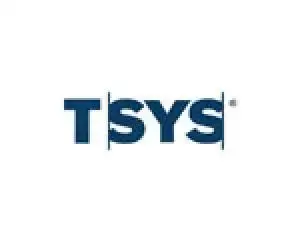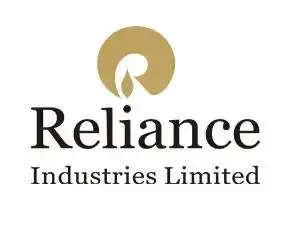
Get a Quote
Get a Quote and Find Services to Fit Your Needs 50000+ Satisfied Clients
5000+ Licenses & Registration
15 Branches across India
75 Years + Combined experience
Satisfied Clients
Services
Years Combined Experience
Get Started!

























IP1 License process
IP-1 license is an authorization issued by the Department of Telecommunication (DoT) to businesses who want to work as telecom Infrastructure Provider of Category-I. Reach out to Registrationwala and start the process of IP-1 registration today. Here, IP refers to the Infrastructure Provider, a specific service provider whose infrastructure consists of passive resources required by the telecom industry stakeholders. In DOT or the Department of Telecommunication, there is an innate need to make sure that these resources have the right quality, can push the industry forward, and is helpful to the industry. Thus, as this nuanced service provider, you can define the entire generation of IT growth.
The infrastructure providers facilitate the telecom infrastructure as a service by providing passive telecom resources to the telecom service providers. The resources are as follows:
.jpg)
These are just some of the resources an infrastructure provider facilitates for the telecom industry. However, none of that would have been possible without the IP 1 license.
While the above resources are passive-type, there was a time when active resources also required the IP-1 License. Among the types of IP Licenses, people often look for the active one. However, the DO has now removed the required authorization – IP2 License. The decision was possibly taken for ease of business. IP-1 License registration is the authorization to become an Infrastructure provider that provides level 1 telecommunication resources to Industries. The Department of Telecommunication is the primary authority that issues this License.
With an IP-1 license, a company can provide telecom service providers with technological infrastructure. With this License, an IP company can provide technical aid like Dark Fibre, Right of Way, Tower, and Duct Space.
The applicant must note that those mentioned above are sensitive to industrial changes, so he must regularly check with the DoT for the latest IP-1 licensing requirements.
One thing we missed in our discussion about getting an IP 1 License is the document required. The documents that you're required to submit the hard copies of at the Department of telecommunication to get the IP Licence are as follows:
.jpg)
The straightforward steps of the IP1 registration procedure have been designed to make it easier to get IP-1 License. India, to make the process easier while also maintaining the integrity of the registration process, has given us the following roadmap:
You can neither acquire the IP1 License as a proprietorship nor as a partnership firm. You have to be a registered business entity under the Companies Act 2013. Thus, your first step is establishing a business entity by registering your company.
Regardless of our digital times, there is no online way to file the application. Thus, you have to get the hard copies of the documents required.
Hire experts to file the application via the IP1 license application form on your behalf at the nearest branch of the Department of Telecommunication. Don't forget to attach the receipt of the IP-1 registration fee alongside that application.
It doesn't take long for the Department to pick up your application, but it does take a long for them to process it. Wait for the application's processing.
If the information you've filled in the application form and the documents you've submitted are in order, you'll obtain the IP1 License.
Post-Incorporation Compliances for IP-1 Licensee
As you can see, it's easy to understand when it comes to the sheer process of an IP 1 License. However, it won't be enough if you want to start one of these infrastructures as a service company. Like any other government registration, the process is more complicated than you can see. Whether filing the IP1 License application or conducting a follow-up, the complexities make it necessary to get Assistance. That's where our team comes forward to lend you a hand. As one of India's primary IP Licensing Companies, it's our job to provide you with the best possible help.
So, how do we help you? We take on the three crucial steps to get you certified as an infrastructure provider by the Department of Telecommunication:
Infrastructure as a service market, as huge as it's now, could not have achieved this much success without the aid of experts like us. There are several ups and downs to acquiring IP1 Licence. We ensure you don't have to go through any of them. Just bring forth your requirements, and let us handle how to use a strategic approach to get you the IP1 License.
So, set up your infrastructure service provider unit by becoming one of India's few IP-1 license holders in India. Let us make it possible for you. Get the process started.
Q1. What is an IP1 License?
A. IP1 License is the authorization the Department of Telecommunication gives to make an Infrastructure provider.
Q2. What is an Infrastructure Provider?
A. IP refers to the Infrastructure Provider, a specific service provider whose infrastructure consists of passive resources required by the telecom industry stakeholders.
Q3. Why does the DoT issue IP1 licenses?
A. In the Department of Telecommunication, there is an innate need to ensure that the telecom infrastructural resources have the right quality, can push the industry forward and is helpful to the industry. Thus, as a nuanced service provider, the IP-1 license applicant must be able to define the entire generation of IT growth.
Q4. What kind of resources does an Infrastructure Provider dispenses?
A. The infrastructure providers facilitate the telecom infrastructure as a service by providing passive telecom resources to the telecom service providers. The resources are as follows:
Q5. Is the IP1 license mandatory?
A. These are just some of the resources that an infrastructure provider facilitates for the telecom industry. None of this can be possible without the IP1 license.
Q6. What are the types of Infrastructure Provider licenses?
A. There are two types of Infrastructure Provider licenses in India:
Q7. What is an IP-1 License registration?
A. IP-1 registration certificate is the authorization to become an Infrastructure provider that provides level 1 telecommunication resources to Industries. The Department of Telecommunication is the primary authority that issues this license.
Q8. What are the benefits of having an IP1 license?
A. With an IP-1 license, a company can provide telecom service providers with technological infrastructure. With this license, an IP company can provide technical aid like Dark Fibre, Right of Way, Tower, and Duct Space.
Q9. Is there any restriction on Foreign Equity Level for the IP1 license?
A. No, there is no restriction on the applicant company's foreign equity level.

★ ★ ★ ★ ★
I very much appreciate the fact that you guys possess tremendous knowhow of private limited company incorporation. You have exhibited professional and respectful manner towards my query and I would seriously recommend you guys to all the folks looking for outstanding business services.

★ ★ ★ ★ ★
Thanks to their support, I got my trademark successfully. I highly recommend their services for anyone needing help with their intellectual property. The person assigned to me was very cooperative and helpful.

★ ★ ★ ★ ★
Thanks to their support ragistrationwala team, I got my IP-1 license successfully and special thanks to Miss.Kanishka for your great and timing support !!!!!! I have archived my goal one step forward... Thanks for the entire team....

★ ★ ★ ★ ★
Really helped a lot in getting my both VNO licenses. Great experience working with the team and very humble team, thanks for providing the vno license on time.

★ ★ ★ ★ ★
I had a good time working with Registrationwala. Good team. I would recommend their services to others.

★ ★ ★ ★ ★
It was extremely great service of Registrationwala consulting firm, and this firm is providing the best services and worry about the client's required services along the client's satisfaction.

★ ★ ★ ★ ★
Superb Experince! Within no time the trademark registration was on.Highly professional team. I am very much Impressed with the prompt response and efficiency.Thank you.

★ ★ ★ ★ ★
We had taken ISP license from registration wala and the supporting person is very helpful to taken that license his communication and his work is satisfactory and thanks for those services

★ ★ ★ ★ ★
I sincerely appreciate your prompt support in helping me get the access license so quickly. Your professionalism and efficiency are truly commendable. Thank you for going above and beyond to assist me. Keep up the great work!